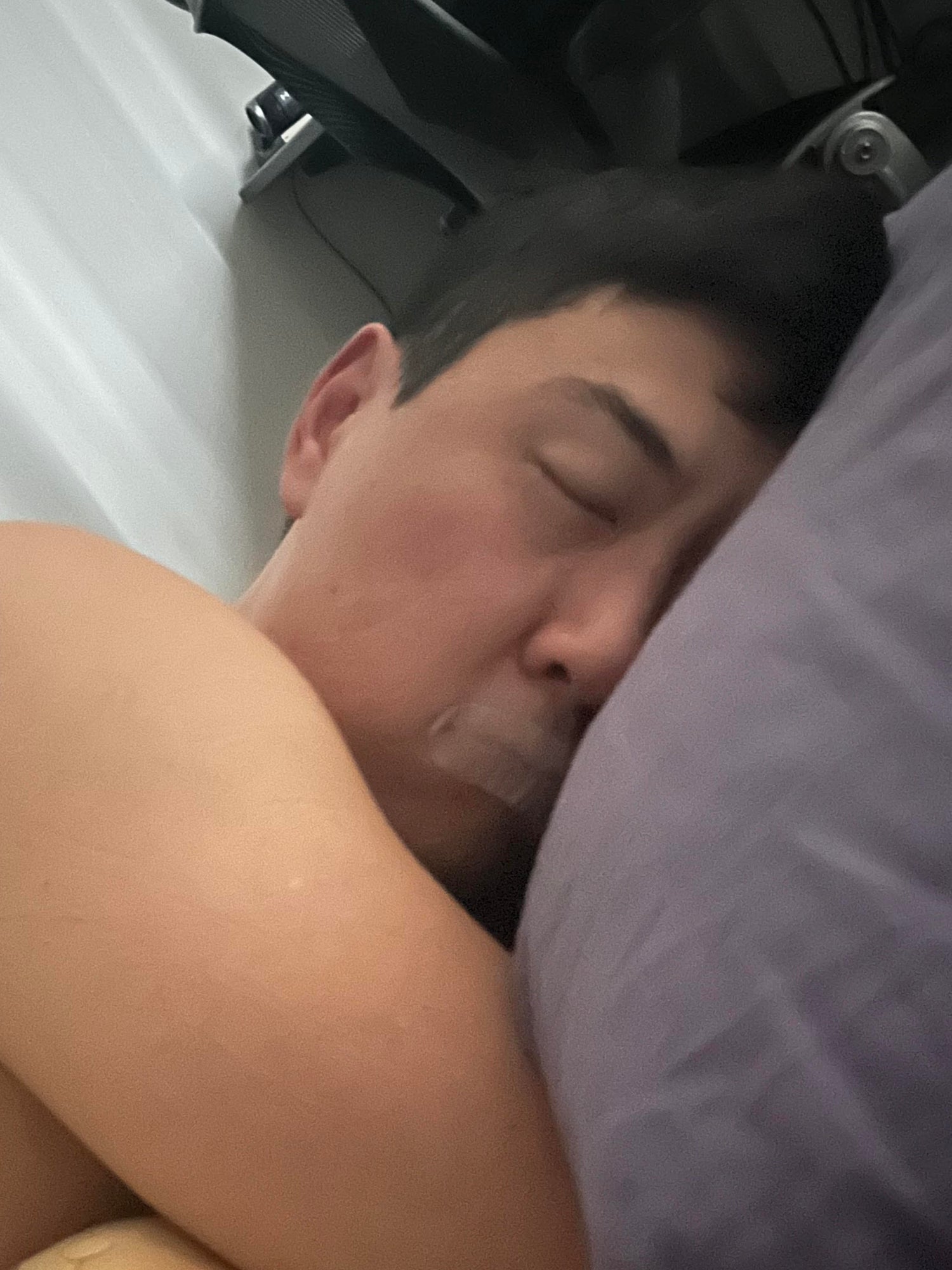It Started With a Breath
For most of my life, I was a mouth breather — and I had no idea how much it was hurting me. My sleep, energy, confidence, and health were all quietly suffering. Until one day, everything changed
A Story About Struggle, Sleep, and Self-Discovery
From childhood habits to late-night snoring and burnout in the big city, I’ve lived through the hidden effects of poor breathing. Silent Seal was born from the simple desire to sleep better — and help others do the same.

A Mouth Breather From Day One
For as long as I can remember, I was a mouth breather.
No one ever told me it was a problem. I didn’t realize how it was quietly affecting me—changing the way my face developed, making my teeth crooked, and impacting my sleep, focus, and athletic performance. I went through braces, restless nights, and constant congestion without ever knowing the root cause.
It wasn’t until my junior year of high school, when I joined the track team, that things started to change. I had taken a break from basketball and was focused on getting faster. That’s when a teammate and close friend said something simple that stuck with me: “Breathe through your nose.”
I tried. After sprints, it felt awful—like I couldn’t get enough air. I didn’t understand what was supposed to be happening, so I brushed it off. I was young, invincible, in shape, eating healthy, and feeling fine... or so I thought.
The Hustle Took a Toll
After landing my first corporate job in NYC, I threw myself into the hustle — long hours at a law firm, a 5-hour roundtrip commute, late nights, and nonstop socializing. But behind the grind, my health was quietly falling apart. I was snoring, grinding my teeth, waking up with a dry mouth and sore jaw, and constantly exhausted. I thought it was normal — until it wasn’t. The fatigue, poor sleep, and unhealthy habits piled up, and I found myself drained, foggy, and out of alignment with who I wanted to be.

Basketball Was My Anchor
Basketball kept me grounded. It was my outlet, my connection to friends, and the one consistent thing that helped me stay active and clear my mind. During open runs in 2019, I met a friend "Chris"— an incredibly skilled player in his mid-30s who was dunking effortlessly and dominating games. Curious how he was in such elite shape, I looked him up and discovered he trained pro athletes, including NBA stars like Joel Embiid and Ben Simmons.
When I finally asked what he did, his answer caught me off guard:
“I’m a manual therapist. I teach people how to breathe.”
That simple sentence changed everything.
Chris explained how poor breathing habits affect nearly every system in the body — from sleep and immunity to focus and even performance. He introduced me to mouth taping, the foundational habit that kickstarted my journey to better sleep, health, and energy.
“I didn’t realize I was breathing wrong my entire life — once I discovered mouth taping, everything changed."

Mouth Taping Changed Everything
I was curious — and desperate — so I bought a pack of mouth tape on Amazon. The first few nights were awkward and uncomfortable, but I stuck with it.
Then the magic happened.
I started waking up with no dry mouth, no sore jaw, and no memory of waking up in the middle of the night. My sleep was deeper. I had more energy during the day. My teeth grinding stopped. I wasn’t snoring anymore. I was finally breathing through my nose — naturally.
As I kept taping, everything got better — my workouts, my mood, even my performance on the basketball court. I shared it with friends who snored or struggled with dry mouth, and they experienced the same life-changing results. That’s when I realized:
MORE PEOPLE NEED TO KNOW ABOUT THIS
Silent Seal Was Born
My transformation lit a fire in me.
What started with a piece of tape turned into a deep dive into the science of breathing — from Stanford researchers to ancient techniques and pioneers like Wim Hof. I realized something powerful: most people have no idea how poor breathing habits are holding them back from better sleep, better health, and better living.
I knew I had to share what changed my life.
That’s why I created Silent Seal — a mouth tape brand with a mission:
to help people sleep better, breathe better, and live fully.

Join Me in the Mission
I started Silent Seal because I believe better sleep and better breathing can change lives — just like it changed mine.
This is more than just mouth tape. It’s a movement to help people feel more energized, more focused, and more alive.
If you’ve struggled with snoring, poor sleep, or low energy, you’re not alone.
Let’s change that — together.
